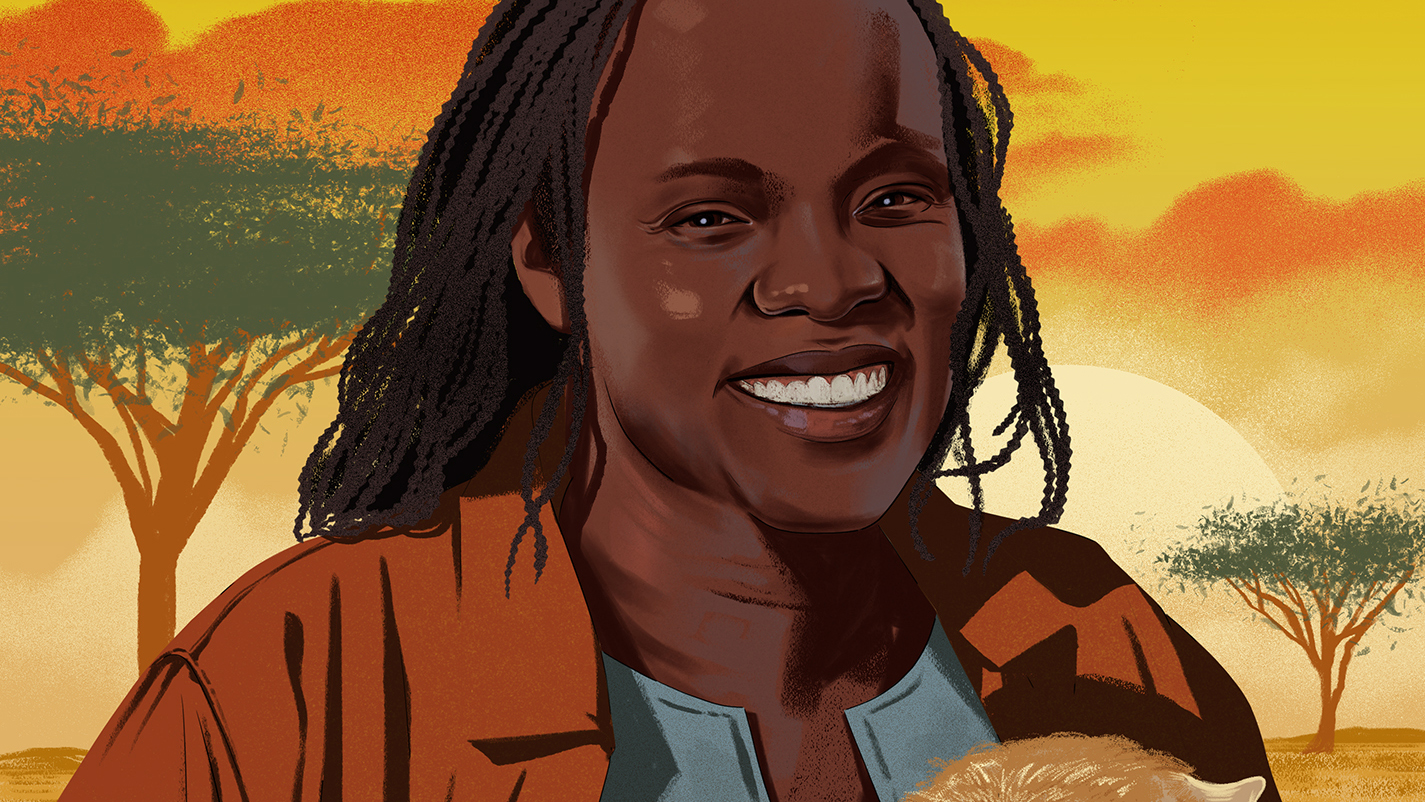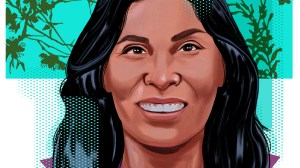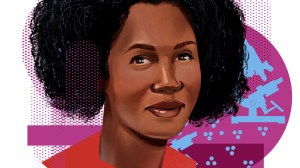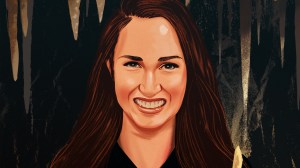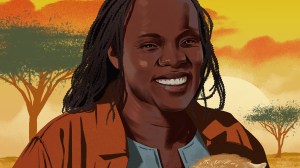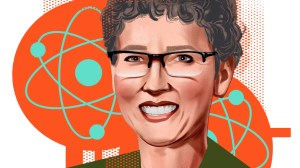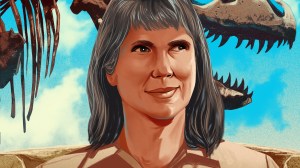In this series
Veterinarian & biologist, Nairobi, Kenya
By studying baboons in the wild, Mercy Akinyi looks for how diseases start, progress, and transmit to others. This keeps primate populations healthy and also informs disease prevention and care for human populations that share their habitat.
In her faith, she draws heavily on the virtue of patience. “Most successful researchers spend decades to achieve groundbreaking results,” said Akinyi, a veterinarian at the Institute of Primate Research in Nairobi.
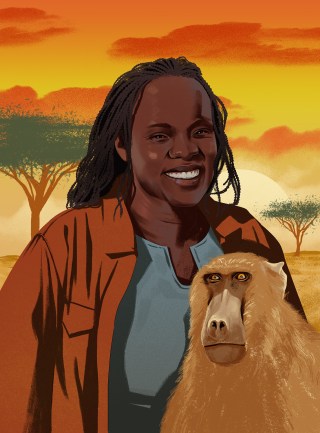 Jonathan Bartlett
Jonathan BartlettWhile her classes and lecturers have always been mostly male, she found a female mentor in grad school who encouraged her to apply for a PhD. “I still turn to her for advice as I continue with my science career.”
When she arrived at Duke University, “the hardest part was being away from my home country and adjusting to the new culture,” she said. She completed her PhD in 2017.
Now, she worries about how she will balance work with the demands of a newborn baby as she pursues a postdoc position at the KEMRI Wellcome Trust. “I believe that females’ career progression is slower when they start having children, and so many people shy off to have children until they have accomplished the major milestones,” she said.
While she hopes to make novel contributions to global health, “I would also like to be a role model to the many young African women in these fields,” noting that there are more women in Kenya pursing PhDs today.

